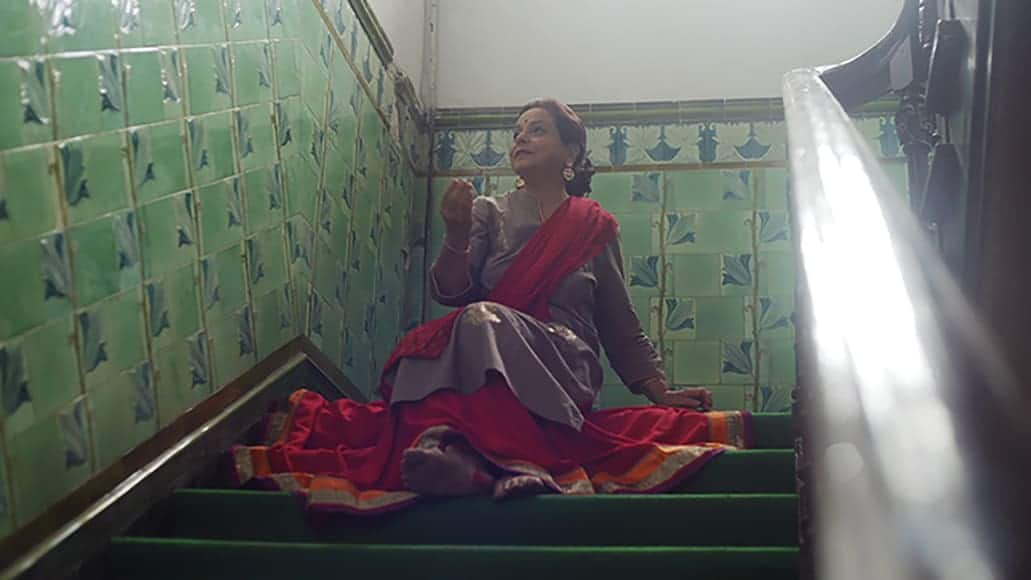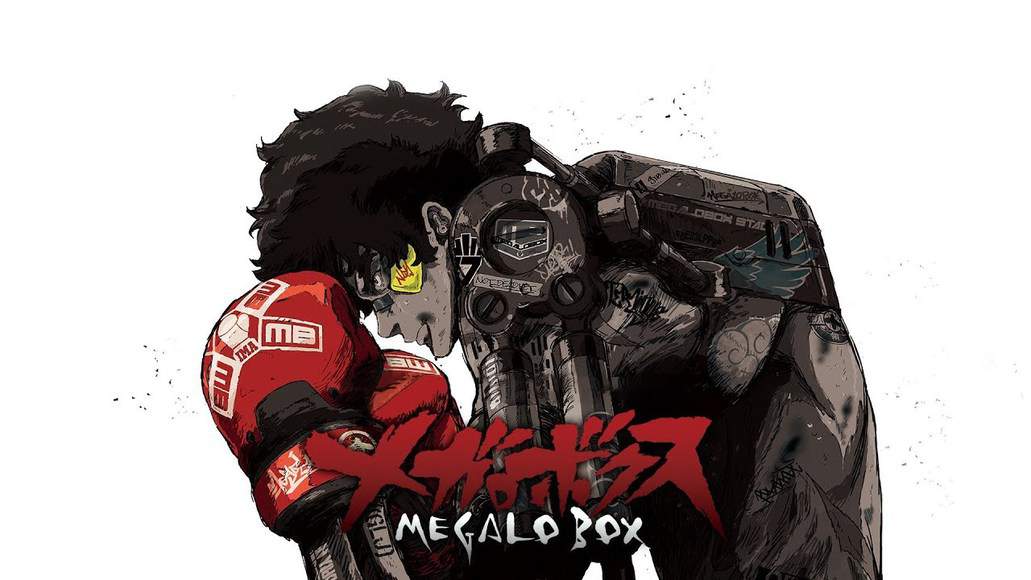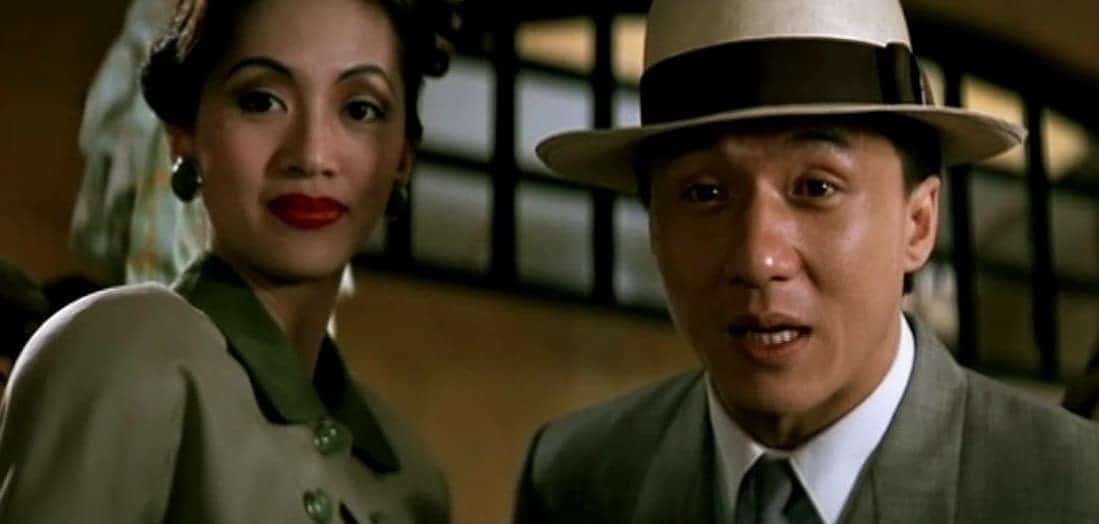The full programme for the 2022 edition of Fantasia International Film Festival, Quebec's premiere genre film festival which runs this year from July 14th to August 3rd, has been announced and as always, it features a vast and varied selection of Asian titles right across its programme. In addition to a Korean Animation Spotlight, showcasing an amazing variety of excellent works, Asian films also populate their flagship juried competition Cheval Noir, the best of genre cinema in Selection 2022, the experimental and audacious Camera Lucida, animation segment Axis and the Fantasia Retro section, while also having a presence in their Documentaries from the Edge and Fantasia Underground section.
Here is a list of all the Asian titles, feature and shorts, at Fantasia International Film Festival 2022:
Features:

Alienoid (dir. Choi Dong-hoon, South Korea): In medieval Korea, in the final days of the Goryeo Dynasty, two Taoist warrior-mystics—clumsy swordsman Mureuk and gunslinging Lee Ahn—strive to gain possession of a legendary holy sword. In modern times, a long-hidden secret—that extraterrestrials have been locking up alien prisoners inside living human bodies—threatens to explode into the open, causing serious problems for the enigmatic Guard and determined police detective Moon Do-seok. When a portal in time is torn open between the two moments, chaos erupts in a whirlwind of blades, bullets, brute force, and arcane fury!
Anime Supremacy (dir. Kohei Yoshina, Japan): The anime industry of Japan is enormous, with 200 new TV shows and two trillion yen in revenue each year. For seven years, soft-spoken yet strong-willed Hitomi Saito has climbed the ranks, and is set to direct a series for the first time. At the same moment, the difficult but undeniably brilliant director Chiharu Oji is set to make his big comeback after almost a decade. The hit series that made Oji famous is what inspired Saito to jump into the anime field, and her goal is to match, and even surpass, his success and relevance. Her chance has arrived. Their two programs are both scheduled to debut in the same prime-time Saturday slot, and after Saito challenges her rival on stage at an anime convention, the two production teams each set out to outdo one another, because there can only be one number-one!
Baby Assassins (dir. Hugo Sakamoto, Japan): Working the cash register at a convenience store? Cooking food at a nondescript diner? Serving up sweets and smiles at a maid café? For cheerful Chisato and mopey Mahiro, two teenage girls with opposing personalities, the options for the part-time work they seek aren't all that appealing. After all, they're already making good money as a pair of ruthlessly efficient killers for hire. The policy of their shadowy employer, however, requires that upon graduation from high school, they each develop a cover story. That means sharing an apartment and finding menial jobs. At the same time, they've run afoul of a psychopathic yakuza boss and his bratty son and daughter. As the conflict escalates and the blood starts to flow, will Chisato and Mahiro get the job done?
My Broken Mariko (dir. Yuki Tanada, Japan): Tomoyo Shiino is enjoying her lunch hour, listening to the news. When she hears that a woman named Mariko has jumped from the fifth floor, she panics. Could it be her childhood friend? Unfortunately, it is her. Her memories are jumbled and when she learns that the ashes are at the home of Mariko's father, who beat her throughout her youth and sexually assaulted her during her adolescence, she explodes. Tomoyo rushes in and snatches the urn containing her BFF's remains from her at knifepoint, seizing the moment to berate him with all her might. Caught up in a constant whirlwind of memories, she decides to take the deceased to the beach, as she had always wanted. Tomoyo's introspective journey begins badly. A motorcyclist steals her bag with all her belongings and the countless letters Mariko wrote to her. As a result, her memory becomes less and less selective. Resentment and guilt come to the funeral.
Chilli Laugh Story (dir. Coba Cheng, Hong Kong): Working from home during the pandemic has driven Coba, his family—and most of Hong Kong—stir crazy. At the very least, is has the city craving some spice with their take-out! Coba's family is originally from Chaozhou, where generations relish—and endure—a special Chiu Chow chili spice on most occasions, no matter how heat or humid. His mother has been making this sauce instinctively for years. When Coba realizes that he might have a goldmine on his hands, ever the entrepreneur, he decides to take the family's secret recipe online. The “Chiu Chiu Chiu” sauce is born and the family's tiny home soon becomes a business headquarters. All seems rosy and trouble-free until the business grows, and Coba faces an offer he can't refuse, with the extended family's petty jealously only adding fuel to the fire. The heat is truly on—Chiu Chiu Chiu might be too hot to handle!
Chorokbom (dir. Yoon Seo-jin, South Korea): Chorokbam… “Green night.” The night of envy. Or is it fate? A night guard discovers a dead cat hanging by its neck during one of his shifts. As if struck by a vision of things to come, a bad omen, his familial life starts crumbling. His overworked wife grows further exasperated and a son, working as social worker, barely makes ends meet. As if cursed, or predetermined, the further death of a relative begins unraveling buried family secrets.
Chun Tae-il: A Flame That Lives On (dir. Hong Jun-pyo): Life is a constant struggle for the Chun family in 1960s South Korea. Though young Tae-Il has acquired tailoring skills from his bitter, alcoholic father, the bright and motivated lad is also denied a proper education. Beset by poverty, any paying work must take precedence. The family relocates to Seoul is the forlorn hope that their fortunes might improve. There too, the worker's lot is a miserable one, as Tae-Il discovers when he takes a job in Peace Market, a notorious cluster of sweatshops. Workloads are too great, wages too low, conditions severely unhealthy. Labour laws exist in principle, but not in practice. Bonding with his co-workers and earning their admiration, Tae-Il delves into the law books and spreads the word, but his efforts are in vain. As a new decade dawns, Chun Tae-Il is driven to make a much greater sacrifice for workers' rights.
Confession (dir. Yoon Jong-seok, South Korea): Yoo didn't kill his mistress! Or did he? Released on bail, Yoo escapes into a retreat with his mysterious new lawyer, Ms. Yang, who has never lost a single case. The clock is ticking before the judgement at court. The path to victory involves him confessing every finite detail for her to construct an infallible defence. However, Yoo still has some hesitancy with full disclosure. As the events leading to the murder emerge, it appears that the lovebirds were also involved in earlier foul play that triggered a vengeful party with unfinished business. Will Yoo survive the night—and the judge?
Convenience Story (dir. Satoshi Miki, Japan): Kato (Ryo Narita, HOMUNCULUS), an aspiring screenwriter, can't seem to catch a break. He's working on something, but it's not going anywhere; he wastes time pitching to eccentric executives, but no luck there whatsoever. Doors remain closed. Furthermore, his relationship with actress Zigzag is increasingly volatile. Asked to step out buy a specific brand of dog food for her beloved pooch Cerberus, the young scribe finds himself on an unexpected path of karmic comeuppance. A questionable detour in judgement brings him from one convenience store to another—stranded in the middle of desolate field of grass. This fantastical establishment is run by a mysterious couple that gets Kato into hot waters—the kind that might very deliver him from his slump.

Demigod: The Legend Begins (dir. Huang Wen-chang, Taiwan): The martial artist Su Hua-Jen has risked his life clambering to the summit of one of the five sacred mountains of Wu Lin, only to come across two monstrous beings in battle. His timely intervention turns the tide of the fight, and unbeknownst to him, sets in motion a series of monumentally consequential events. Back in the city, Su has a more mundane problem to face—an enormous debt with the local book lender. To pay this off, he must peddle his remarkable skills as a physician. While Su would prefer to steer clear of the affairs of the martial arts world, a request from the Lord of Globe Castle is financially promising—and might gain him access to the Fantastic Academy, where he can feast his eyes on the Limitless Celestial Book. But treachery is afoot, and Su is soon drawn into a crisis that will rock the foundations of Heaven and Earth.
Detective vs Sleuths (dir. Was Ka-fai, Hong Kong): Hong Kong is rocked by a series of brutal murders. The victims are suspects in cold cases who have eluded arrest for many years. The group of killers, who call themselves “The Chosen Sleuths”, are vigilantes taking justice into their own hands, and openly challenging the Hong Kong police. In response, the police form a task force of their own “chosen sleuths” to stop the criminals. Jun Lee (Lau Ching-Wan) was a legend in the police force as an ace detective before a mental breakdown. Once nicknamed “The Chosen Sleuth”, Jun now lives on the streets after he was disgracefully dismissed from the force. To prove that he is not a lunatic, but the real “Chosen Sleuth”, Jun joins the fight against the vigilantes, to stop their elaborate plans. Racing against time, Jun and pregnant police detective Yee (Charlene Choi) must solve cases both new and old to bring the Chosen Sleuths to justice.
Dobaaraa (dir. Anurag Kashyap, India): Rare and terrifying, geomagnetic storms wreak havoc on communication technology—and maybe even the fabric of reality. In 1996, 12-year-old Anay makes a video for his absent father as just such a storm rolls in. He's distracted by a commotion next door, and his curiosity has deadly consequences. A quarter-century later, Antara and her family move into the house where Anay and his mother lived. The tragic history of the place only adds to Antara's unease as she struggles with a failing marriage. One sleepless night, as an ominous thunderstorm again brews in the sky outside, she toys with the old video camera and TV set collecting dust in a corner. What she sees is Anay's recording from the past—until it isn't. Because he sees her too, and to her alarm, he's mere moments from his doom. Her pleading saves Anay's life back then—but what has she done to her own right now?
Dr. Lamb (dir. Danny Lee, Hong Kong): Summer 1982: A series of brutal murders have rocked Hong Kong. The bodies of four innocent young women have been found dismembered and police have no leads, until nude photos of one of the victims show up in a photo processing plant. The photos are claimed by cab driver Lam Gor-Yu (an unforgettable Simon Yam) who shuts down once Inspector Lee (Danny Lee, who co-directed with Billy Tang) and his team pick him up for questioning. As his family is interrogated, the picture starts to become clear. More photos of other victims are found, weird stories of Lam's perversities surface, and eventually, very unexpected physical evidence emerges. Lam soon confesses and the true story of what really happened becomes even more disturbing, shocking and horrifying. And the most worst part of the story? It's all true.
Fast & Feel Love (dir. Nawapol Thamrongrattanarit, Thailand): Thirty-year-old Kao (Nat Kitcharit) has devoted his entire life to a uniquely challenging, tunnel-vision discipline: competitive cup-stacking. But as adulthood looms, and his girlfriend Jay (Urassaya Sperbund) dumps him after a decade, he wakes up to a two-pronged ultimatum. One, Kao must beat the cup-stacking champion of the world during an upcoming online competition. Two, the cup athlete takes up his ex on her final offer to guide him through the biggest challenge of all. As she learns to prioritize herself, he must reciprocate and learn to take care of himself—whether that's not drinking milk or fixing the water pump. Welcome to competitive “adulting”.
The Fifth Thoracic Vertebra (dir. Park Syeyoung, South Korea): Long classified as merely a sub-species of plants, molds and fungi have captured the imagination of scientists in recent years. Far more sophisticated and far-reaching than ever imagined, fungi not only stand out as nearly indestructible but are possibly the absolute rulers of our planet. In his feature debut, THE FIFTH THORACIC VERTEBRA, South Korean filmmaker Park Syeyoung tells the story of mold left behind on a mattress after a couple splits. Structured around a countdown to a mysterious birth, the film follows the life of the mold as it slowly grows into a creature that steals the vertebrae of humans who inhabit the bed. A movie filled with deep longing and even deeper loneliness, it captures the wistfulness of young love lost and the monster of despair that emerges from that sense of abandonment.
The Fish Tale (dir. shuichi Okita, Japan): “Meebo” loves fish. Scratch that, that's an understatement. She's obsessed: a certified freak, a card-carrying “fish-a-holic.” Since childhood, it's all she thinks about, cares to draw, and wants to eat. Her parents are understandably a little worried—when they aren't indulging her, cooking squid, mackerel or sea bream in every conceivable way. But as Meebo's aquatic obsession develops and takes her into the beginnings of adult life, her unique interest—somewhat extreme, even for one of the most fish-obsessed countries on Earth—forces admiration. One must admit: fish make for a fascinating life!
The Girl from the Other Side (dir. Yutaro Kubo, Satomi Maiya, Japan): The world is divided in two, between the safe city of the Inside, and the dense and dangerous forest of the Outside. The security of the humans who live in the inside realm must be fiercely protected from the Outsiders, dark and monstrous creatures whose mere touch transmits their mysterious curse. Terrible tragedy strikes at the border of these two opposed realms, and among the dead, there is a sole survivor. This innocent girl, Shiva, is found by one of the shadowy Outsiders. With great care not to touch her, the beast assumes the role of her guardian, setting up a household for them in an abandoned village. She calls him Teacher. His compassion and patience towards her seems strangely human. The same cannot be said of the other Outsiders, lurking and watching from the woods…
Goodbye, Don Glees! (dir. Atsuko Ishizuka, Japan): There really isn't that much to do in a small Japanese farming town in summer, especially when you're a teenager at the bottom of your high school's social hierarchy. Roma, a farmer's son with modest ambitions in life, is best friends with Toto, who's just returned from his studies in Tokyo. Their little clique of two, which they've nicknamed Don Glees, will have to make room for a third member, Drop, also just arrived in town. What Drop lacks in size and years, he makes up for with irrepressible enthusiasm—despite the sad secret he occasionally hints at. The Don Glees tradition of a summer fireworks party of their own becomes more exciting when they buy a drone to film the festivities, but then the drone is carried off by the wind, and a forest fire breaks out. Suspicion falls on them, and proving their innocence means finding the lost drone and its memory card. The trio set out on their bikes for an expedition into the remote mountain forest, and begin and adventure that will leave none of their lives unchanged.
Hansan: Rising Dragon (dir. Kim Han-min, South Korea): Down through the centuries since 1592, historians of naval warfare have whistled with admiration when they utter the name of Admiral Yi Sun-sin. The Joseon-era military leader's balance of sagacity and audacity saw him undefeated through almost two dozen battles, turning certain doom into stunning victory more than once in the Korean kingdom's campaigns against Japanese invaders. The most famous of his exploits was the Battle of Myeongnyang, where his tiny fleet repelled an enemy tenfold or more in number. That notorious clash was the subject of 2014's THE ADMIRAL: ROARING CURRENTS, an epic of wood-on-water warfare so spectacular that it quickly became the most-watched and highest-grossing film of all time in South Korea.

Hard Boiled (dir. John Woo, Hong Kong): A cheerful teahouse in Hong Kong is the scene of a sudden eruption of violence when Inspector “Tequila” Yuen pounces on an illicit gun deal taking place there. His partner doesn't survive the melée, and Tequila's propensity for letting hot lead do the talking earns him the ire of his boss. Meanwhile, triad killer Alan is slowly infiltrating the operation of criminal arms dealer Wong—who doesn't know that Alan is in fact an undercover cop. Tequila and Alan cross paths soon enough, clashing at first but, when the bad guys close in and the path to Wong's arm cache is revealed, standing back to back—because these two sure as hell won't stand down.
Heaven: To the Land of Happiness (dir. Im Sang-soo, South Korea): After a violent collapse on the floor of his cell, prisoner 203 ends up in the hospital, where he learns that he has only two weeks to live because of an inoperable brain tumour. Nam-sik, on the other hand, has an incurable disease that requires medication he can never afford, so he goes from hospital to hospital to steal his precious medicine. The two men meet in a peculiar context, as 203 tries to escape and Nam-sik is unmasked by his colleagues. After a chaotic escape involving a clash of taser guns and dangerous criminals, they find themselves on the run—in a hearse containing a coffin stuffed with illicit money. Pursued by police and organized crime, this mismatched duo must learn to work with each other through sometimes perilous and often zany encounters, so that 203 can see his daughter again before he perishes.
The Heroic Trio (dir. Johnnie To, Hong Kong): The Demonic Eunuch has dispatched his best fighters to snatch newborns. The motive is to prepare the next generation of invincible assassins, and find a new ruler. Panic has risen among the citizens, unsure if their precious baby will be the next victim. Enter a trio of masked female vigilantes—Wonder Woman, Invisible Woman, and the Thief Catcher—whose paths have collided in the past due to their links to the evil master. They are armed with their special arsenal of flying darts, swords, machine guns, and kung-fu chops, yet not fully certain where their loyalties lie. Meanwhile, the deadly assassin Kau (Anthony Wong!) has entered the city with his flying guillotine, and soon the Demonic Eunuch and his army of underground minions will follow.
Inu-Oh (dir. Masaaki Yuasa, Japan): Two centuries after the legendary conflict between the Heike and Genji clans, a fisherman's young son passes his days as a diver, scouring the lake's bottom for relics of the tragic final battle. A mission for shogunate retainers leaves the boy blinded and his father dead. At that same moment, a monstrous, misshapen son is born to a family of respected Noh theatre performers. The blind boy grows up to be a humble yet talented travelling musician, seeking the hidden villages of the Heike's descendants to gather their stories. The deformed and despised boy skulks and capers at the margins of society, his hideous face hidden behind a mask, all the while secretly mastering the craft of stage performance. When their paths cross, amazing events are set in motion, sending shockwaves through medieval Japanese society.
Just Remembering (dir. Daigo Matsui, Japan): July 26, 2021. Teruo is turning 34. As he waters his plant, and performs his daily rehabilitative stretches, he considers his career as a dancer, behind him due to injury. The young man now works as a lightning technician, shining the spotlight on his former colleagues. In another rearview mirror: Yo, Teruo's former partner. A cab driver, she now navigates the eerie, emptied-out streets of a COVID-stricken Tokyo. That day, as she brings a musician to her ex's venue, she wanders backstage, as if led by a powerful sense of melancholy, or familiarity. Catching a glimpse of Teruo on stage, the memories of the past six years come flooding in.
Kappei (dir. Takashi Hirano, Japan): In the 16th century, the French astrologer Nostradamus predicted that the world would end in July, 1999. According to him, cataclysms would transform the Earthinto a lawless place where evil would prevail. As the deadline approaches, little Kappei and several other children are isolated on a Japanese island to train in the mystical arts of Mukai Sappuken to save the planet. The problem is that Nostradamus has royally screwed up, so in the spring of 2022, their master sends them to live a “normal” life. Poor Kappei finds himself in Tokyo with shorts that are really too short, the attitude of a manga character, and the psychosocial baggage of a fossil. His quest for justice brings him his first friend, who introduces him to his first love. The apocalypse fighter has not been trained for this at all, and every emotion totally destabilizes him. However, he will have to adapt, as some of his less grounded comrades will soon force a confontation.
Kid with the Golden Arm (dir. Chang Cheh, Hong Kong): Famine has struck ancient China! 200,000 teals of gold are on their way to help a region in desperate need, under the protection of martial artists of the highest calibre. But the merciless Golden Arm, and his three kung-fu buddies Silver Spear, Invincible Iron Robe, and Brass Head, are creating havoc, resulting in a high body count for those risking their life and limb to protect the precious loot. Golden Arm is an evil young martial artist whose body of shiny muscles is impervious to all weapon attacks. However, Hai Tao, a drunken fool with incredible martial arts skills, may have a secret angle, involving booze, that will pinch his Achilles' heel. The game's further afoot as, unseen in the shadows, Iron Kick has been getting a kick out of the mayhem and waiting for the golden opportunity to strike, but who is he—or she?
The Killer (dir. Choi Jae-hun, South Korea): Against his will, Eui-kang (Jang Hyuk) is forced to take in a 17-year-old girl, Yoon-ji (Anne of the K-pop group GWSN), for three weeks while his wife goes on a trip with the girl's mother. On the first night, the young woman goes out with friends and becomes the target of a human-trafficking ring that gets rich from child prostitution. But what this sordid criminal organization doesn't know is that Eui-kang is actually a retired assassin, an expert in martial arts, knives, and ballistics. When Yoon-ji is kidnapped, he quickly reverts to his murderous instincts, setting the city on fire to find her.
The King of Pigs (dir. Kim Daejin, South Korea): A serial killer is on the loose. He leaves cryptic, violent crime scenes in his wake, even taking the liberty of directly addressing a homicide detective, Jong-suk (Kim Sung-kyu, HANSAN, KINGDOM), by identifying himself. The murderer is a childhood friend of the policeman. His name is Kyung-min (Kim Dong-wook, ALONG WITH THE GODS 1 and 2) and he targets those responsible for their misery when they were beaten, bullied, humiliated, and marginalized at school. He takes pleasure in murdering his former tormentors, and Jong-suk can't help but feel a little satisfaction. He must, however, stop the killer, but Kyun-gmin is always one step ahead of him and his colleagues. A moral dilemma nags at him, as well as a question that obsesses him: who are the real monsters?
Legendary in Action! (dir. Justin Cheung, Ho Li, Hong Kong): Dragon was one of the biggest martial-arts stars of his day! But his bad temper got him removed abruptly from the final episode of the hit show SEVEN STAR SWORD. Flash-forward to 30 years later and a shady investor gives washed-up director Tiger a once-in-a-lifetime opportunity, to direct a reboot of SEVEN STAR SWORD. By pure serendipity, he comes across the man himself! Dragon is game for a comeback, but is also suffering from health issues. As the cameras roll, Dragon still believes he's a big star and insists on doing all his own stunts. In his first scene, he disregards the script like the old days and slays all the baddies in full character! With Dragon's mounting demands and unforeseen troubles brewing behind the scenes, will SEVEN STAR SWORD get the concluding ending it richly deserves?
Mercenaries from Hong Kong (dir. Wong Jing): A notorious assassin (Philip Ko of BOXER'S OMEN) must be eliminated at all costs! A band of mercenaries in Hong Kong are hired by a mysterious tycoon's young daughter for this special mission, and the payoff is more wealth than they can imagine. Armed with major firepower, they journey into the jungles of Cambodia. The main target is secured inside a heavily guarded camp. The dirty half-dozen plan the mission carefully and are ready to assault the camp. But the mission might become impossible—it's been booby-trapped with nasty surprises that may have been set up by their own employer!
Missing (dir. Shinzo Katayama, Japan, South Korea): Depressed and in debt following the death of his wife, Santoshi (Jiro Sato, FABLE) tells his young daughter he has found a way out. Pointing to the reward note, he vows to find infamous serial killer “No Name” (Hiroya Shimizu, TOKYO REVENGERS), claiming he saw the man in the flesh a few days earlier. Kaeda (Aoi Ito, BLANK) cannot believe her aloof, goofy father. But when he goes missing without a trace, she starts fearing the worst—and begins looking for him.
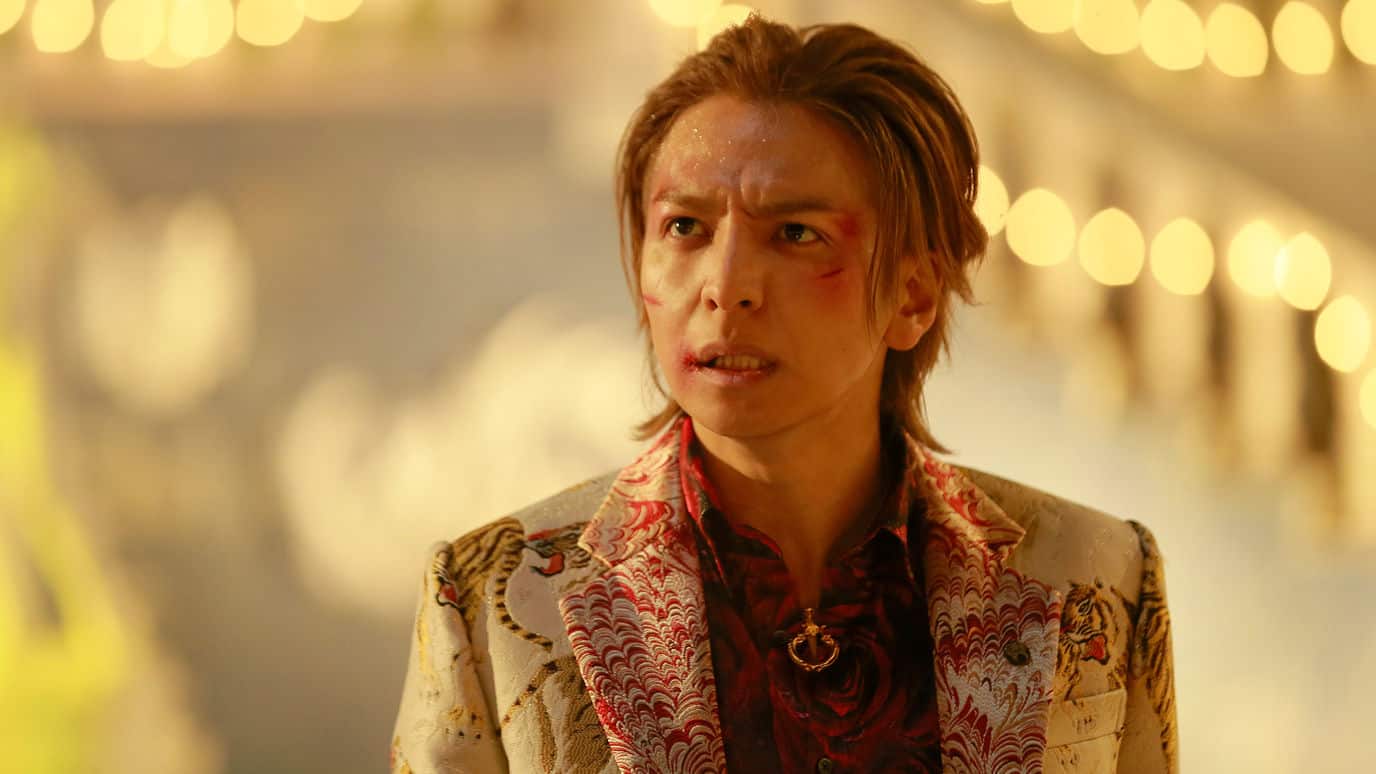
The Mole Song: Final (dir. Takashi Milke, Japan): The dynamic duo of the great Takashi Miike (ICHI THE KILLER) and the brilliant screenwriter Kankuro Kudo (TOO YOUNG TO DIE!) conclude the MOLE SONG trilogy in the best possible way: by surpassing the two previous films, which already caused hysteria at Fantasia!
Next Door (dir. Ji-ho YEOM, South Korea): Chan-woo has been trying to enlist in the police academy for five years now. This collection of failures has made him an impulsive slacker, so the continuous noise from the apartment next door strains his patience while he completes his umpteenth application. Moreover, he can't even pay the administrative fees, so he asks for help from a friend, who agrees on one condition: Chan-woo has to go for a drink with his buddies. He wakes up the next day covered in bruises, with an epic hangover and a bout of amnesia. Then he notices a body lying in the middle of a pool of blood and realizes that he's in the home of the noisy neighbours he'd previously threatened. In an absurd and perilous turn of events, he finds himself trapped at the scene of the crime by insistent cult preachers and an overly benevolent landlady, who prevent him from slipping out. He'll have to use all the investigative skills he's acquired to unravel an infernal puzzle that's only getting worse, while finishing his application.
Next Sohee (dir. July Jung, South Korea): Young Sohee (Kim Si-eun) is a bubbly, tenacious high-school student with a fiery temperament living in rural Korea. She has chosen a labour-market-oriented education and enters a paid employment programme with high hopes. Her school motivates her to sign a contract with a call centre that abuses its trainees with the promise of non-existent bonuses, pushing them to use highly unfair techniques. Sohee is constantly yelled at, even receiving threats and obscenities, but when her overworked supervisor takes his own life, she begins a psychological descent that will lead her to commit an irreparable act. Detective Yoo-jin (Bae Doona) is in charge of the investigation. Impassive, temperamental, and unwilling to follow orders, what she discovers about the events that led to Sohee's suicide eventually gets to her. Her crusade against all those who get rich off vulnerable teenage girls becomes personal.
On the Line (dir. Kim Gok, South Korea): One phone call can have disastrous consequences. Fifty workers at a construction site in Busan are about to see their life savings vanish because of a simple phishing scam. A fake insurance company offers a discount that the boss can't refuse, sends the employees' data and that's it. One of the victims, Seo-joon (Byun John, THE BOOK OF FISH), a former detective turned labourer, is determined to get to the root of it. Faced with the powerlessness of the authorities against these invisible criminals, he embarks on a dangerous mission to infiltrate and dismantle a huge cartel of fraudsters operating out of China. There, he eventually gains enough respect to approach Gwak (Kim Moo-yeol, THE GANGSTER, THE COP, THE DEVIL), the man who ruined his life and the lives of his family. Not only does he have no regard for his victims, but he takes pleasure in hearing their distraught voices as they realize that all is lost.
One for the Road (dir. Bak Poonpiriya, Hong Kong, Thailand): Boss (Thanapob Leeratanakajorn), quite the ladies' man, has found great success as a meticulous bartender in New York City. However, when he gets a call from long-time friend Aood (Natara Nopparatayapon), still in Bangkok, the endless party comes to an end. As his estranged friend announces to him that he is dying of cancer, the two hatch a plan to reunite, make amends, and take a farewell trip across Thailand to return sentimental items to Aood's exes. It's a shaky, potentially disastrous plan as it is, bound to expose painful memories and previous romantic entanglements in all their ugliness. A plan that is only made worse by the fact Aood is holding something back… A secret that no boozy bucket-list trip can solve.
One and Four (dir. Jigme Trinley, China): A blizzard is about to hit the Tibetan Plateau. Distraught forest ranger Sangyue (Tibetan cinema mainstay Jinpa) wakes up groggy and moody from an inebriated late night. Disoriented, he starts recounting his dreams—as he usually does—in the cabin's journal, when a bloody man (Wang Zheng) barges in claiming to be a forestry officer on the trail of a poacher. Skeptical, Sangyue suspects the man to be the poacher who has caused a major wreck nearby… but also questions his dull senses. Soon Kunbo (Kunde), his booze buddy from the night before, walks in bearing further contradictory news… joined by a fourth—armed—man who also claims to be a cop. And what of the ghostly deer in the doorway? Who's who doesn't begin to cover it.
The Pass: Last Days of the Samurai (dir. Takashi Koizumi, Japan): After three centuries of peaceful isolation, the foreign ships have arrived and broken Japan's spell of solitude. As the nation moves inexorably towards the Imperial restoration and a new era as a modern, globally engaged state, it is torn by conflict and chaos. Deeply rooted beliefs are clashing. Japan is split, East from West, and civil war is brewing. Trapped between these Imperialist and Shogunate forces is the Nagaoka domain in central Echigo province, site of the strategically vital Enoki Pass. Tsuginosuke Kawai, chief retainer to Lord Makino, wishes fervently that the people of Nagaoka be spared the horrors of war, and advocates neutrality and negotiation. A canny and perceptive man, Kawai nonetheless assures that the domain is well armed. His wisdom and discipline, and his love for his family and his fief, make him a sturdy rock amid the raging currents around them, but can even he resist the torrential rush of history?
Popran (dir. Shinichiro Ueda, Japan): Tokyo is in the midst of a mysterious “skyfish” invasion. But Tagami Tatsuya (Yoji Minagawa, MELANCHOLIC) pays that no mind. He has found great success as the CEO of an online manga-reading platform—built on the back of creators, mind you—and is busy basking in his accomplishments. He forgoes not being a colossal dick to everyone around him… until a fantastical twist of fate takes that away. Indeed, one morning, he discovers his genitals have spontaneously disappeared. Poof! Gone! Presented with a straw-sized hole where his junk used to be—and myriad opportunities to embarrass his arrogant self over it—he soon discovers, however, he is not alone in this peculiar condition. The “Popran Club” clues him into what happened to his member. Thus begins a six-day quest to retrieve his thing before it withers and dies for good. Gasp!
Rani Rani Rani (dir. Rajaram Rajendran, India): Rural villager Rani makes her meagre pay as the custodian of an abandoned factory, while contending with her hapless, unhealthy husband and conniving in-laws. She arrives at her workplace one day to discover a pair of ambitious tech-sector entrepreneurs and an impatient potential client, who've driven out to this isolated site for a demonstration of a somewhat dubious time-travel machine. They need a test subject, though, and talk Rani into taking the risk. The trial activation doesn't send her very far, mere metres and minutes into the past, but it's enough to create complications when Rani finds herself… well, finding herself.
Red Shoes (dir. Toshiro Saiga, Japan): As a child, Manami attended her father Takuma's boxing matches and marveled at the scarlet shoes he wore. Unfortunately, he and his wife died in a terrible accident while he was preparing for the long-awaited championship. Now a single mother of a daughter she adores, Emi, Manami has decided to follow her father's footsteps and is back in the ring after her husband died of a long illness. However, her mind and body are not there and she is humiliated. Sinking into poverty, barely able to feed Emi and losing every job she has, her mother-in-law gains custody of her daughter. Overwhelmed by grief and anger, unable to catch her breath, she falls to her lowest point. However, her coach comes to pick her up from the Fukuoka Red Light and promises to make a champion of her so she can reconnect with Emi.
Ring Wandering (dir. Masakazu Kaneko, Japan): Sosuke is an aspiring manga artist, though for the moment he's stuck doing dreary labour on construction jobs in central Tokyo. He hopes to make his mark with a story about a wily old hunter and his nemesis, a Japanese wolf. Sosuke struggles to conclude his comic-book story, in part because it's difficult to draw an animal that's been extinct for a century. A partial canine skull he accidentally uncovers on a work site might hold the answer, so he sneaks back at night to forage for more bones. While there, he's surprised by a distraught young woman seeking her lost dog. Midori sprains her ankle, so Sosuke agrees to give her a piggyback ride back home. They pass through the gates of a shrine, and a different Tokyo awaits Sosuke on the other side…
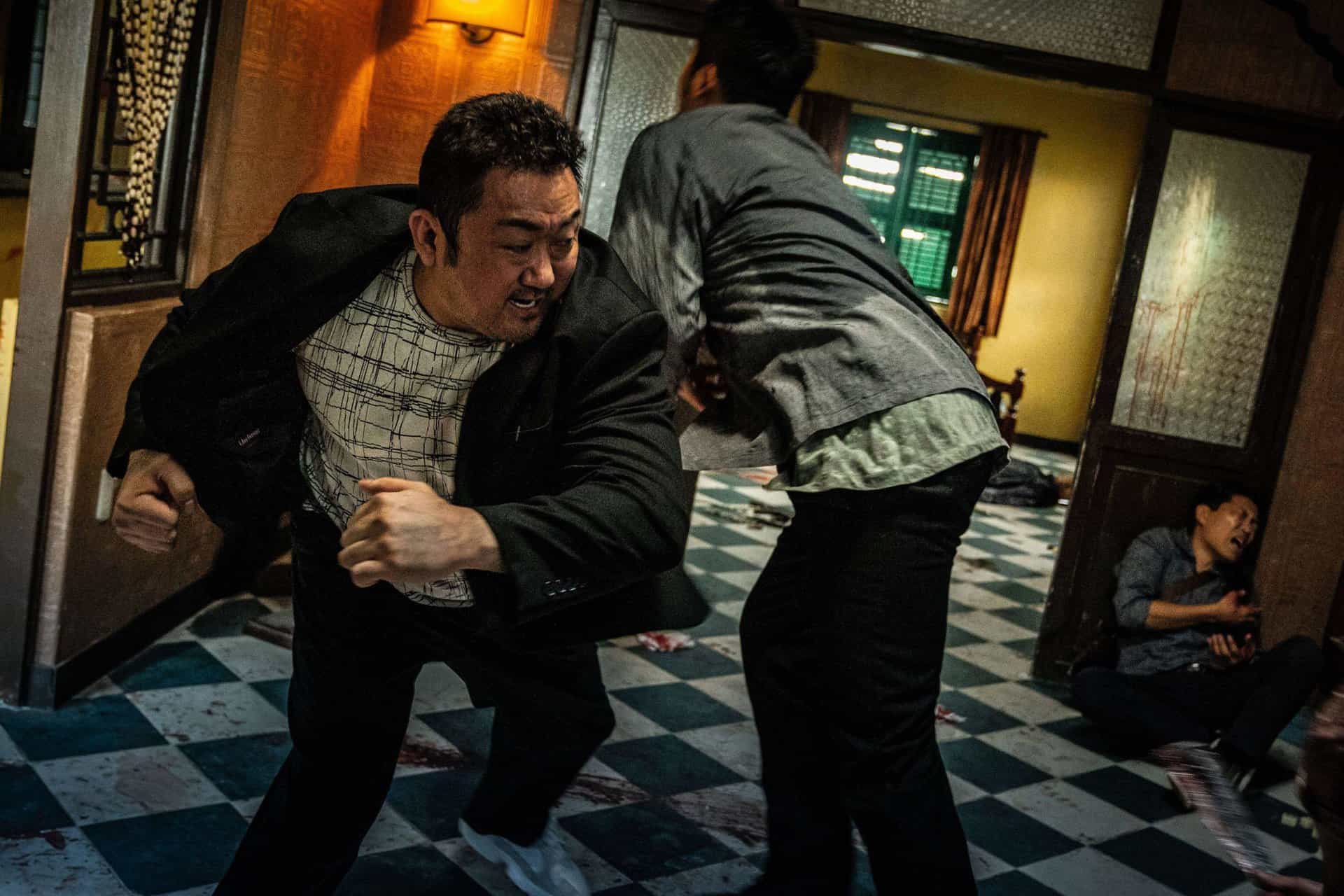
The Roundup (dir. Lee Sang-song, South Korea): Legendary officer Ma Seok-do, the man who violently grinds up criminals first and worries about procedures too late for his superiors' liking, is about to export his indelicate techniques to Vietnam. Indeed, many expatriate thugs are defrauding Korean tourists and investors. One of the main suspects has contacted them to turn himself in for immediate repatriation. Ma and Captain Jong, supposedly an interpreter yet hiding the fact that he is about as bilingual as kimchi, meet the accused in Ho Chi Minh City and discover that a deranged gangster using cruel and gruesome methods is terrorizing even his fellow thugs. The unstoppable lawman Ma sets out to pursue this mysterious psychopath, despite the reluctance of his superior and the interdictions of the local authorities. To say that subtlety is not his strength would be an understatement, so hang on. It's going to be a bumpy ride!
Sadako DX (dir. Hisashi KIMURA, Japan): Ever since the legendary screening of Hideo Nakata's RING at Fantasia 1999, the festival has continued to follow Sadako's curse and the downfall of her many victims. Just when everything seemed to be said, the hairy spectre returns with a surprising twist: humour and self-mockery.
Seire (dir. Kang Park, South Korea): An old belief from Korean folklore dictates that family members should never venture down a potentially taboo path when their child is born, as this could lead to a curse called Seire, involving evil spirits. To Woo-jin, this is all nonsense and he doesn't care, despite his wife's reluctance. He decides to attend the funeral of a former love, Se-young. When he arrives, he meets Ye-young, the twin of the deceased, who strangely enough he did not know existed. She tells him that her sister had a hard time getting over their break-up and that something seems to have broken inside her. When he returns, Woo-jin and the people around him start experiencing strange paranormal manifestations. Things quickly escalate to the outright terrifying. Perhaps the solution lies in Woo-jin's past…
Shari (dir. Nao Yoshigai, Japan): Welcome to Shari, of the Shiretoko Peninsula: a small town, located on the easternmost part of Japan's northernmost island Hokkaido, where the Sea of Okhotsk meets with Russian shores. There, we meet a shepherd who loves to bake; hunters who love deer a few ways; and flying squirrel enthusiasts. A peculiar collector is known for his “Hall of Hidden Treasures”. We also observe the conspicuous absence of drift ice, snow and fish in this crucial season. Scarier still: the Red Thing—a monster “like a throbbing blood clot”, a sanguine yeti emblematic of a filmmaker's own worry and frustration at all that is adrift and amiss in this city where man, folklore, and nature converge harmoniously—and where nature is now skipping a beat.
Shin Ultraman (dir. Shinji Higuchi, Japan): Giant, unearthly monsters are appearing in Japan, and the government has created the S-Class Species Suppression Protocol, an elite agency dedicated to confronting and defeating this invasion by extraterrestrial lifeforms. But when an invisible electrical monster attacks the countryside, a giant, silvery alien being lands on Earth. The titanic superhero, soon to be codenamed Ultraman, destroys the deadly beast quickly enough—but accidentally kills SSSP officer Shinji Kaminaga during the battle. Secretly assuming Kaminaga's appearance, Ultraman joins the SSSP to help defend humanity, but as more menacing monsters from space arrive, the cosmic conflict can only become more confounding!
Sirens (dir. Rita Baghdadi, USA, Lebanon): Set amid the ongoing revolution in Lebanon, Emmy-winner Rita Baghdadi's SIRENS shines a spotlight on the Middle East's first all-female metal band, Slave to Sirens. It follows its co-founders and lead guitarists Shery Bechara and Lilas Mayassi as they defy prejudice, gender norms, and social stigma while navigating their own complex relationship. As it turns out, they are more than just performing partners. At a time when more and more Arab women embrace career over marriage, they strive not only for musical success, but also for empowerment and sexual freedom—dreams that sometimes feel hopeless in a country on the brink of political and economic collapse. Metal culture, however, is all about liberation, and our titular quintet fiercely refuses to live in fear.
My Small Land (dir. Emma Kawawada, Japan): Seventeen-year-old Sarya (Lina Arashi) doesn't quite look like other Japanese girls. When asked, she says she's German. It's a convenient answer, far less complicated than explaining she is a Kurdish minority from Turkey, whose family immigrated to Japan under less than ideal circumstances. Soon, however, she cannot keep up the façade. She learns that her father's refugee status is being turned down. This restricts her family's ability to work and move beyond the limits of their neighbourhood. Sarya is put in a difficult position as provider for her young brother and sister and interpreter for her father, who now navigates a stern bureaucratic minefield. Ambitions of a normal life—boyfriends, college, the usual—seem to drift further and further away, as Sarya is torn between adult responsibilities and adolescence in Japan.
Space Monster Wangmagwi (dir. Gwon Hyeok-jinn, South Korea): Menacing, masked humanoids from another world are approaching Earth, and they haven't come in peace. Their arrival coincides most inconveniently with the wedding plans of a handsome Air Force pilot. When the alien attackers drop a gigantic, remote-controlled cosmo-creep through our stratosphere, the jets take off to confront it, leaving our hero's fiancée to weep with worry. The couple's special day may be cancelled forever, however, because the giant monster—a ludicrous, lop-eared, tongue-lolling, hobnailed horror nicknamed Wangmagwi (“Big Devil”)—deviates from its devastation of Seoul to scoop up the bride-to-be. Despite their evident difference in size, and species, and so forth, Wangmagwi develops an immediate, King Kong-sized crush on the pretty lady in the palm of its hand. Resolving this romantic dilemma—and saving the world, of course—will require some very daring maneuvers.
Special Delivery (dir. Park Dae-min, South Korea): If you need to get a package from one place to another, and the postal service won't touch it, who do you turn to? To Jang Eun-ha and her sketchy boss Baek, that's who. As a sideline to Baek's junkyard business, he brokers special deliveries—anything, anywhere, any which way. Getting there is the task of Jang, an ace driver of unmatched sangfroid. She may not be as cold-blooded as she likes to think, though. When a former baseball player lands himself in hot water with gangsters, she finds his son Seo-won in the backseat of her car, with the key to a corrupt cop's illicit funds in his pocket and a swarm of murderous henchmen on his tail. Getting herself and the kid out of this mess—alive—will mean pushing her vehicular skills to the max, and more!
Stellar: A Magical Ride (dir. Soo-kyung KWON, South Korea): Working in the car loan business, Young-bae (Son Ho-jun) is in trouble because his friend Dong-sik (Lee Kyoo-hyung), who is heavily in debt, has disappeared with a Lamborghini worth $300,000. His boss (Heo Sung-tae) puts a lot of pressure on him to find the luxury car, because unbeknownst to the employee, an illegal cargo has been hidden in it by a local gang. Young-bae has recently lost his father, who left him his old Hyundai Stellar. By a twist of fate, he drives this ramshackle, noisy car that can't go faster than 50 km/h in search of the Lambo, and tries to escape the thugs who are after him…
Tang and Me (dir. Takahiro Miki, Japan): Ken, a former doctor in training, has decided to give up everything since the tragic death of his father. In fact, he does nothing but play video games. One morning, he finds a small rusty robot named Tang behind his house and tries to chase it away. The droid follows him home and arrives just in time to see him kicked out by his wife Emi. Tang is immediately attached to his new friend and doesn't let go, but Ken wants to get rid of him as soon as possible by swapping him for a newer model to give to Emi. He fails miserably, but he meets a designer who sees something unique in Tang, suggesting that it can hold a lot more than its dilapidated frame suggests. He's right on target, as thugs are already on their tail to take the robot. Ken and Tang's journey soon turns into a perilous adventure where the notorious slacker must shake off his torpor, open his heart to his cute partner, and maybe even win Emi back.

What To Do With the Dead Kaiju? (dir. Satoshi Miki, Japan): The battle is over, and a brittle sense of relief settles over Japan. It has been ten days since the cataclysmic defeat of the gigantic monster that had wreaked havoc in Tokyo. The public alarms have ceased and the conscripted army is demobilizing. The mysterious force that slayed the beast, where no human military technology could, remains an enigma, but right now the main task is to pick up the pieces in the aftermath. There's one piece, though, that presents a challenge—the enormous, rapidly decomposing carcass of the creature. Officer Arata of the Japan Special Force is assigned to the clean-up task force, an assignment made all the more complicated by political opportunism and romantic entanglements.
What's Up Connection (dir. Masashi Yamamoto, Japan, Hong Kong): When Hong Kong teenager Chi Gau Shin (Tse Wai Kit, SCHOOL ON FIRE) wins a trip to Japan, he unleashes a chain of events that will soon bring him from the secluded fishing village of Po Toi O to Tokyo by way of Kamagasaki, the so-called slums of Osaka. Upon returning home, he also finds his family of resourceful grifters on the verge of expropriation: a multinational conglomerate led by a ruthless Japanese developer has found the village, and is determined to raze it to build the new centre of world trade!
Whether the Weather Is Fine (dir. Carlo Francisco Manatad, France, Philippines, Singapore, Indonesia): Waking in the aftermath of Typhoon Haiyan to find his coastal town (a stand-in for Tacloban City) completely decimated, Miguel (Daniel Padilla, THE HOWS OF US) begins searching for his mother Norma (Charo Santos-Concio, KISAPMATA, THE WOMAN WHO LEFT) and friend Andrea (Rans Rifol) in the rubble. Shelters are overflowing, people are bartering for food, praying, dancing and doing anything necessary to survive. Meanwhile, news of a single ship leaving the coast for Manila makes its way through the crowd, as another storm threatens to hit land imminently. The trio must decide what to do, but their home has other plans for them.
The Witch: Part 2. The Other One: (dir. Park Hoon-jung, South Korea): Amid the horrifying carnage in an isolated research facility that has been the target of a violent raid, a single survivor opens her eyes. The girl, barefoot and blood-smeared, walks out of the concrete bunker, through the woods, and into the difficult life of Kyung-hee. The young woman is trying to hold onto her family farmland, despite the predations of local crook Yong-doo. The girl seems strangely naive, unfamiliar with the world, but has taken a liking to Kyung-hee and her brother Dae-gil. So when Yong-doo and his henchmen lean a little too hard on her new friends, she calmly unleashes a flash of violence far beyond normal human capabilities. The event does not go unnoticed, and soon more than one group with dark plans for the mysterious girl are closing in. These agents of unseen forces will not be so easily dissuaded from their goals.
Shorts:
(OO) (dir. Oh Seo-ro, South Korea)
A-Choo (Lee Bo-reum, South Korea)
Across the Wind (Hong Jun-pyo, South Korea)
After Taste (dir. Xuan Trang Nguyen Thi, Vietnam)
Alien Farmer (dir. Lee Yong-wook, South Korea)
Amen a Man (dir. Kyeong bae Kim, South Korea)
Anima Possession (dir. Was Mo-chan, Hong Kong)
The Animal Book (dir. Cho Hyuna, Kim Sujeong)
Apartment (dir. Lee Jai, South Korea)
The Astronaut and His Parrot (Dir. Arati Kadav, India)
Balloon (dir. Han Yerin, Dang Heejin, South Korea)
Be Big (dir. Jeon Da-young, Kim Min-gyung, Han Seo-a, South Korea)
Black Out: Mafia Game (dir. Lee Hyunggu, South Korea)
Carnivorous Bean Sprout (dir. Seo Saerom, South Korea)
My Child (dir. Kim Hyun-too, South Korea)
The Death Vendor (dir. Jeon Jinkyu, South Korea)
Deiji Meets Girl (dir. Ushio Taizawa, Japan)
The Dream Eater (dir. Jo Min-jeong, South Korea)
Fiddlehead Rain (dir. Yoo Ye-jin, Lim Hyeon-ji, Kang Jeon-Yun, South Korea)
The First Class (dir. Kim Myung-eun, South Korea)
The Fox Boy (dir. Tak Do-Yeon, South Korea)
Ghosts (dir. Park Jee-youn, South Korea)
A Girl Meets a Boy and a Robot (dir. Shinichiro Watanabe, Japan)
Goodbye, Drama! (dir. Min Ji-hye, South Korea)
Great Hand and the Bulgasari (dir. Kim Min-hee, South Korea)
Green Light (dir. Kim Seongmin, South Korea)
The House of Loss (dir. Jeon Jinkyu, South Korea)
Incomplete Woman (dir. Huh Su-young, South Korea)
Krasue (dir. RYO HIRANO, Japan)
Life in a Box (dir. Heng-Chieh Lee, Taiwan)
Linh: Magic Powder (dir. Leo Dinh, Vietnam)
Liv&Bell “Bell kun no hosokute nagai otomodachi” (dir. Natsuki Kida, Japan)
The Loach (dir. Xu An, Xi Chen, China)
Manimals (dir. Oh Ji-hyeon, South Korea)
Mascot (dir. Kim Leeha, South Korea)
Megalomania (dir. Kim Eun-seo, South Korea)
Mighty Robo V (dir. Miko Livelo, Mihk Vergara, Philippines)
Mira (dir. Park Sae-mi, South Korea)
Misery Loves Company (dir. Lee Shasha, South Korea)
Molting (dir. Katsushi Bowda, Japan)
Moshari (dir. Nuhash Humayun, Bangladesh)
My Father's Room (dir. Jang Nari, South Korea)
My Moon (dir. Lee Eusong, South Korea)
Nalsum (dir. Jeon Soeun, South Korea)
The Nightmare (dir. Yihui (Cece) Jiao, China)
OUR 2 (dir. Song Yungsung, South Korea)
Perfect City: The Mother (dir. Shengwei Zhou, USA, China)
Persona (dir. Moon Sujin, South Korea)
Piece of Solitude (dir. Elaheh Ghomeyshi, Iran)
The Principle of Sunrise (dir. Ye Song, China)
Report About Death (dir. Kim Jin-a, South Korea)
Riri N Berry (dir. Kook Soo-bin, Shin Jong-hee, Shin So-hyun, Lee Ha-neul, South Korea)
Scarecrow Island (dir. Park Hyemi, South Korea)
Scent of my Shape (dir. Jeong Jiwon, Roh Hyemin, South Korea)
Seoulsori (dir. Kyeong bae Kim, South Korea)
Shining Night (dir. Yang Hyeonseo, South Korea)
A Sip of Water (dir. Cho Hyuna, South Korea)
Stars on the Sea (dir. Jang Seung-wook, South Korea)
Summer Ghost (dir. Loundraw, Japan)
Tank Fairy (dir. Erich Rettstadt, USA, Taiwan)
Things That Disappear (dir. Kim Changsoo, South Korea)
Twinkle the Toothfairy (dir. Han Seoa, South Korea)
Virtual Voice (dir. Suzannah Mirghani, Sudan, Qatar)
Whisper Down the Lane (dir. Raghad Al Barqi, Saudi Arabia)
You Can Fly! (dir. Park Sungbae, South Korea)



